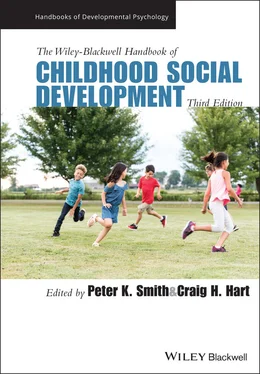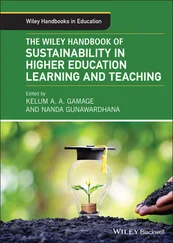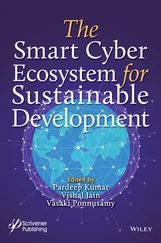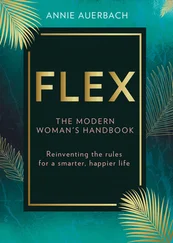According to Israel, the key figure of this radical Enlightenment is Baruch Spinoza ( 1632– 1677), the great Dutch philosopher. The “ Epilogue ” of Israel’s book is entitled: “ Rousseau, radicalism, revolution .” Spinoza by way of Denis Diderot ( 1713– 1784) led to Rousseau and the French revolution. The Émile was indeed radical. In the Émile the author pointed out that he did not only rebel against French society, but also and foremost against its reproduction (Soëtard, 1989, p. 97). Rousseau thought that children should be taken “back to nature” (however, this expression did not appear in his writings, but in those of his commentators). With “back to nature” Rousseau meant: as far away as possible from Parisian decadence. Children should learn to think autonomously, without being led astray by French culture, without following other people’s wisdom from books. This Enlightenment idea is the radical expression of the primacy of the autonomously thinking individual, which had great appeal to Kant. And this is the reason that Rousseau’s Émile is a book for philosophers, not for educationalists, fathers and mothers, as Rousseau emphasized (Bloom, 1979, p. 28). However, to no avail!
The first 4 books (parts) of the Émile describe the stages of a child’s cognitive and moral development, and also how the up‐bringer must respect and be in keeping with these stages. The correspondence with the theory of the future founder of developmental psychology, Jean Piaget (1896–1980), the lifetime director of “ l’Institut J.‐J. Rousseau ” in Geneva, is striking. Thanks to Piaget’s research on cognitive development, the Institute became the most prestigious center for pedagogical and developmental psychological research worldwide for the largest part of the 20th century. Piaget’s and Rousseau’s stage theories are like two peas in a pod. At first glance, this may not seem odd. After all, Rousseau was from Geneva and the Genevan Institute must have been named after him for some good reason. That, however, is too simple a line of reasoning. It should be realized that Piaget’s stage theory is deemed to be the result of unprecedented large‐scale and worldwide, be it mainly Western, empirical research. Particularly, observing his own three children was a rich source of scientific ideas to Piaget. Contrastingly, Rousseau abandoned his five children immediately after birth; he did not like children of flesh and blood at all. The boy Émile is a mere literary concoction. So how can it be that Piaget discovered in empirical research what Rousseau had made up in the process of writing? I think there is a simple answer: European education, particularly in public schools, was shaped according to Rousseau’s ideas, despite Rousseau’s warnings. Below this process is described in a nutshell.
The Émile and Community Schooling
The most important source of Rousseauian education was located in Dessau, Germany, home to the Philanthropinum , a model school, also teacher training school, founded by the educationalist Basedow (1724–1790). The fact that these educationalists called themselves “philanthropists” displayed a pedagogical enthusiasm, very much in accordance with the Rousseauian belief in a benign human nature. They were dedicated to “natural education” and aimed at “developing a child’s possibilities as freely as possible, creating a cheerful development and learning atmosphere, stimulating autonomous thinking, and facilitating a world orientation and practical attitude to life which are focused on the present” (Reble, 1977, p. 62).
Johann Pestalozzi (1746–1827), an educationalist who was inspired by these Philanthropines, implemented Rousseau’s educational ideas in Switzerland. He and his wife Anna read and commented on the Émile and preferred to call their son Jacob by the name of Jean‐Jacques (after Rousseau). Although Pestalozzi rejected the Émile as an “unpractical dream book” (Noordam, 1975, p. 227), he was greatly influenced by it. Like Rousseau, he emphasized a child’s self‐motivation, spontaneity, and natural development. The pedagogy influenced by Pestalozzi is generally referred to with the slogan “ Vom Kinde aus ” (Gläser, 1920) and is very succinctly expressed in his following quote: “ Alles was du bist, alles was du willst, alles was du sollst, geht von dir selber aus ” (“Everything you are, everything you want, everything you should, originates from yourself”: [Van der Velde, 1967, p. 39])
The ideas of the Philanthropines and Pestalozzi not only influenced each other, but also reached the homes of modern upper‐middle class citizens. A fine example is the upbringing of Otto van Eck, which Baggerman and Dekker (2005, 2006) have reported on. In the enlightened environment, in which Otto was raised in The Hague (The Netherlands) around 1780, modern educational methods had been introduced. This boy’s everyday life, which has remained accessible through his diaries, is much like Émile’s life. He has his own garden, in which he seeds and plants and harvests. He walks around carrying his weeder, hammer, and chisel, accompanied by a goat. Clearly, his father, a patriot and Batavian revolutionary, had learnt a lot from Rousseau. His son Otto had to be raised on the land, in close contact with nature, far away from what Rousseau had called “the sewers of the human race” (see Baggerman & Dekker, 2006, p. 39).
The Philanthropines adopted these principles from Rousseau, although they did make them more bourgeois. Being a radical Enlightener, Rousseau in his Émile made it clear how much he rejected the decadence of prevailing French culture, and in doing so he paved the way for the French revolution. The Philanthropines, however, did not take their children to the depths of the woods, as far away as possible from urban life, like Rousseau did with Émile. Rather, they built school gardens in the urban areas in which their schools were located. Rousseau deemed simple craftsman work much more important than what he condescendingly called armchair learning. The Philanthropines agreed, but very much unlike Rousseau they did not let their pupils work autonomously. They organized trips to workshops, farms, and factories. It is true to say that Rousseau’s radical enlightened educational ideas were turned into bourgeois variations by the Philanthropines, who practiced urbanized variations and reflection based on books. These refined variations of Rousseau are encountered when one has the opportunity, thanks to Baggerman and Dekker, to browse through Otto van Eck’s diaries. Otto’s example also shows how the middle class slowly developed a breeding ground for organizing community schooling.
The second half of the 18th century marked the beginning of the establishment of Primary Schools (De Swaan, 2004) in Prussia. They were inspired by both the Philanthropines in Dessau and Pestalozzi in Switzerland. In The Netherlands, the initiative was mainly taken by the Maatschappij tot Nut van ’t Algemeen (Society for the Benefit of the Public; Het Nut for short). This organization was founded in Edam in 1784 (see Mijnhardt & Wichers, 1984) by Jan Nieuwenhuyzen (1724–1806), a Mennonite preacher in Monnikendam. Hendrik Wildens (1745–1809), a fervent patriot and professor in Franeker, most likely was the auctor intellectualis (instigator). His ideas can be recognized in Het Nut : striving for general public schooling, educating children to become democratic citizens, and child‐rearing in a general Christian spirit of tolerance and love for one’s home country. Het Nut founded many primary schools and a number of teacher training schools, published numerous educational books, and took to translating and editing foreign pedagogical works (mainly from Dessau and Pestalozzi’s Switzerland). Also, it established public libraries and savings banks, and held courses for adults, providing systematic information on vital questions and general knowledge. In 1796, Het Nut submitted a proposal to the National Assembly to centrally organize education and to found a general national school. It is in this spirit that the first Dutch School Acts for primary education of 1801, 1803, and 1806 were adopted. The Seminary for Pedagogy in Amsterdam, founded in 1918 at the instigation of Phillip Kohnstamm (1875–1951), must be mentioned separately. Kohnstamm, a physicist, became extraordinary professor of pedagogy on account of Het Nut, and is generally considered as the father of Dutch pedagogy.
Читать дальше












